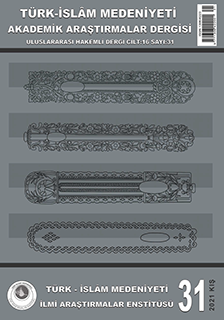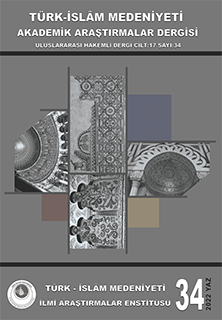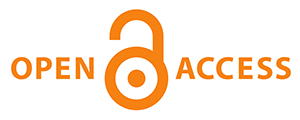Anti-Vaccination in The Post-Truth Era
Keywords:
Anti-vaccination, vaccine, Post-Truth era, social media, sociologyAbstract
According to the debates in the field of social sciences, the concepts of post-truth and social media are among the concepts that best reflect our day. Whether or not the content shared in social media groups reflect the truth becomes ambiguous due to the interactivity peculiar to these platforms, it may seem acceptable to some individuals who encounter these contents for different reasons, and this can multiply the rate of dissemination of this information. There are also posts on the benefits and harms of vaccines in these channels; however, the content related to its harms can attract more attention due to its extraordinary and remarkable information quality and the unquestionability/ limited questionability nature of this medium can open up false information more easily. In this research, the contents of four anti-vaccination groups on Facebook and Instagram were analyzed qualitatively, and the arguments put forward by anti-vaccines while developing an opposition to vaccines were analyzed descriptively within the framework of the phenomenological approach. In this context, it has been determined that these groups put forward the argument that vaccines have ingredients that lead to diseases and deaths, and conspiracy theories about vaccines, and they have turned into virtual communities.
References
BBC News (2016, Kasım 16) “'Post-truth' declared word of the year”.
Alpay, Yalın. (2017). Yalanın Siyaseti, Destek Yayınları.
Ashkenazi, S., Livni, G., Klein, A., Kremer, N., Havlin, A., Berkowitz, O. (2020). The relationship between parental source of information and knowledge about measles / measles vaccine and vaccine hesitancy. Vaccine, 18(46): 7292-7298. https://doi.org/10.1016/j.vaccine.2020.09.044.
Beck, U. (2019) Risk Toplumu: Başka Bir Modernliğe Doğru, İthaki Yayınları.
Betsch, C., Ulshöfer, C., Renkewitz, F., Betsch, T. (2011). The influence of narrative v. statistical information on perceiving vaccination risks. Med Decis Making 31(5): 742–753. DOI: 10.1177/0272989X11400419.
Blume, S. (2015). Anti-vaccination Movements and Their Interpretations, Social Science & Medicine, 62: 628–642. DOI: 10.1016/j.socscimed.2005.06.020.
Castells, M. (2015). Networks of outrage and hope: Social movements in the internet age, London: Polity.
Chen, T., Dredze, M. (2018). Vaccine Images on Twitter: Analysis of What Images are Shared. Journal of Medical Internet Research, 20(4), e130. https://doi.org/10.2196/jmir.8221.
Cheung, C. M., Lee, M. K. (2012). What drives consumers to spread electronic word of mouth in online consumer-opinion platforms. Decision Support Systems, 53(1), 218–225. doi:10.1016/j.dss.2012.01.015.
Cuesta-Cambra, U., Martinez, L.M.; Niño, J.I. (2019). An analysis of pro-vaccine and anti-vaccine information on social networks and the internet: Visual and emotional patterns, El Profesional de la Informacion 28(2), DOI: 10.3145/epi.2019.mar.17, e280217.
d’Ancona, M., Taylor, M. (2017). The Routes Of Post Truth. Rsa Journal, 163(2 (5570), 16-19. JSTOR. https://doi.org/10.2307/26798411.
Downs, J. S., Bruin, W. B., Fischhoff, B. (2008). Parent’s Vaccination Comprehension and Decisions, Vaccine, 26(12): 1595-1607. DOI: 10.1016/j.vaccine.2008.01.011.
Duchsherer, A., Jason, M., Platt, C.A., Majdik, Z.P. (2020). Immunized against science: Narrative community building among vaccine refusing/hesitant parents, Public Understanding of Science, 29(4): 419-435. DOI: https://doi.org/10.1177/0963662520921537.
Elkin, L.E., Pullon, S.R.H., Stubbe, M.H. (2020). ‘Should I vaccinate my child?’ comparing the displayed stances of vaccine information retrieved from Google, Facebook and YouTube. Vaccine, 38(13): 2771-2778. https://doi.org/10.1016/j.vaccine.2020.02.041.
Featherstone, J.D., Bell, R.A., Ruiz, J.B. (2019). Relationship of people’s sources of health information and political ideology with acceptance of conspiratorial beliefs about vaccines, Vaccine, 37(23): https://doi.org/10.1016/j.vaccine.2019.04.063 2993-2997.
Faasse, K., Chatman, C.J., Martin, L.R. (2016). A comparison of language use in pro- and anti-vaccination comments in response to a high profile Facebook post. Vaccine, 34(47): 5808-5814. https://doi.org/10.1016/j.vaccine.2016.09.029.
Garcia-Retamero, R., Dhami, M.K. (2011). Pictures speak louder than numbers: on communicating medical risks to immigrants with limited non-native language proficiency, Health Expect, 14(1):46-57. doi: 10.1111/j.13697625.2011.00670.x.
Godlee, F., Smith, J., Marcovitch, H. (2011). Wakefield's article linking MMR vaccine and autism was fraudulent, BMJ. 342, doi: https://doi.org/10.1136/bmj.c7452.
Güven, A. (2020). Hakikatin Yitimi Olarak Post-Truth: Bir Kavramsallaştırma Denemesi. İnsan ve İnsan Dergisi, https://doi.org/10.29224/insanveinsan.577956 7(23): 20-36.
Harsin, J. (2018). Post-Truth and Critical Communication Studies. Içinde J. Harsin, Oxford Research Encyclopedia of Communication. Oxford University Press. https://doi.org/10.1093/acrefore/9780190228613.013.757.
Hoffman, B.L., Felter, E.M.; Chu, K.H., Shensa, A., Hermann, C. Wolynn, T., Williams, D., Primack, B.A. (2019). It’s not all about autism: The emerging landscape of anti-vaccination sentiment on Facebook, Vaccine, 37(16): 22162223. DOI: 10.1016/j.vaccine.2019.03.003.
Jolley, D., Douglas, K. M. (2014). The effects of anti-vaccine conspiracy theories on vaccination intentions. PloS one, 9(2), e89177. https://doi.org/10.1371/journal.pone.0089177.
Jorgensen, J.J., Ha, Y. (2019). The Influence of Electronic Word of Mouth via Social Networking Sites on the Socialization of College-Aged Consumers, Journal of Interactive Advertising, https://doi.org/10.1080/15252019.2018.1533500. 19(1):29-42.
Kata, A. (2012). Anti-vaccine activists, Web 2.0, and the postmodern paradigm – An overview of tactics and tropes used online by the anti-vaccination movement, Vaccine, 30(25): 3778-3789. https://doi.org/10.1016/j.vaccine.2011.11.112.
Keelan, J., Pavri, V., Balakrishnan, R., Wilson, K. (2010). “An analysis of the Human Papilloma Virus vaccine debate on MySpace blogs”. Vaccine, 28(6): 1535-1540. https://doi.org/10.1016/j.vaccine.2009.11.060.
Ma, J., Stahl, L. (2017). A multimodal critical discourse analysis of antivaccination information on Facebook, Library and Information Science Research, 39, SS. 303-310. https://doi.org/10.1016/j.lisr.2017.11.005.
Martin, S., Kilich, E., Dada, S., Kummervold, P.E., Denny, C., Paterson, P., Larson, H.J. (2020). “Vaccines for pregnant women…?! Absurd” – Mapping maternal vaccination discourse and stance on social media over six months, Vaccine, 38(42): 6627-6637.
Müftüoğlu, S., Babür Tosun, N., Ülker, Y. (2018). Elektronik Ağızdan Ağıza İletişim (Ewom) Kanalı Olarak Youtube Vloggerların Satın Alma Niyeti Oluşumundaki Rolü, Gümüşhane Üniversitesi Sosyal Bilimler Enstitüsü Dergisi, 9(24): 231-254. https://dergipark.org.tr/tr/download/article-file/564558.
Ołpiński, M. (2012). Anti-Vaccination Movement and Parental Refusals of Immunization of Children in USA, Pediatria Polska, 87(4), SS.381-385. https://doi.org/10.1016/j.pepo.2012.05.003.
Orak, B.G. (2020). Sosyal Medyada Hakikat Ötesi (Post-Truth) Kavramının Eleştirel Kuramlar Çerçevesinde İncelenmesi, Yayınlanmamış Yüksek Lisans Tezi, Ege Üniversitesi Sosyal Bilimler Enstitüsü, İzmir.
Pedersen, E.A., Çatı, L.H., Jacobsen, A.ABD, Søborg, B., Bigaard, J. (2020). Strategic health communication on social media: Insights from a Danish social media campaign to address HPV vaccination hesitancy. Vaccine, 38(31):4909-4915. https://doi.org/10.1016/j.vaccine.2020.05.061.
…………. (2016). “Post-truth” declared word of the year. (2016, Kasım 16). BBC News. https://www.bbc.com/news/uk-37995600.
Shelby, A., Ernst, K. (2013) Story and science, Human Vaccines &Immunotherapeutics, 9:8, 1795-1801, DOI: 10.4161/hv.24828.
Soysal, A. (2018) Aşı Karşıtlığı, Madde, Diyalektik ve Toplum, 2018(3), ss. 263-271. http://bilimveaydinlanma.org/content/images/pdf/mdt/mdtc1s3/asikarsitligi.pdf.
Teng, S., Khong, K. W., Chong, A. Y. L., Lin, B. (2017). Persuasive electronic word-of-mouth messages in social media. Journal of Computer Information Systems, 57(1), 76–88. doi:10.1080/08874417.2016.1181501.
WHO (Dünya Sağlık Örgütü). (2019). 2019'da küresel sağlığa on tehdit. https://www.who.int/emergencies/ten-threats-to-global-health-in-2019 .
Yavuz, M. (2018). Aşı Karşıtlığının Tarihi, Toplum ve Hekim, 33(3), ss. 187-194.
Downloads
Published
How to Cite
Issue
Section
License

This work is licensed under a Creative Commons Attribution-NonCommercial 4.0 International License.







